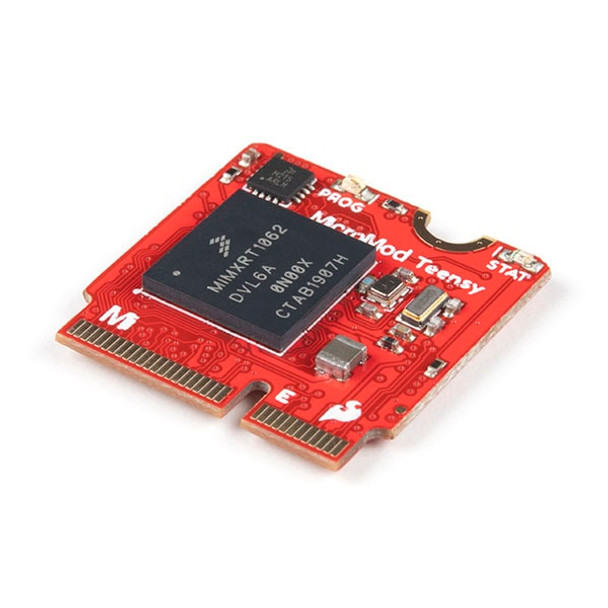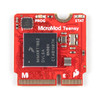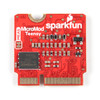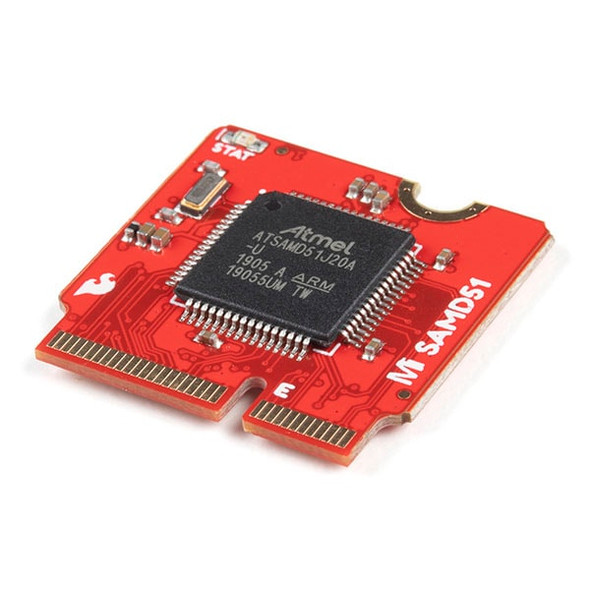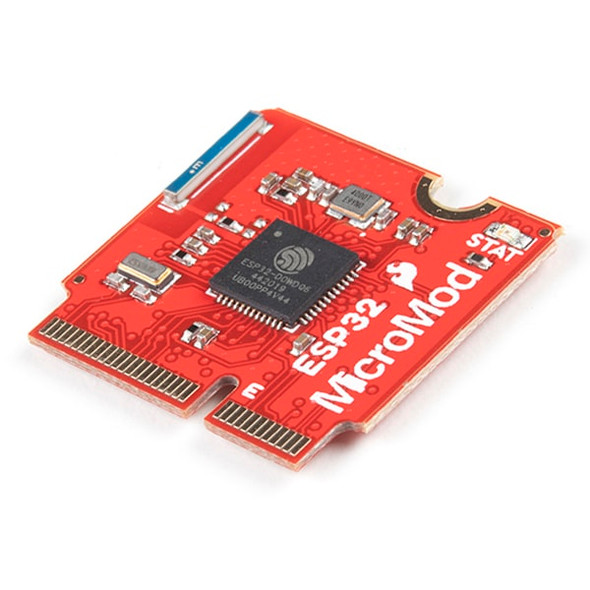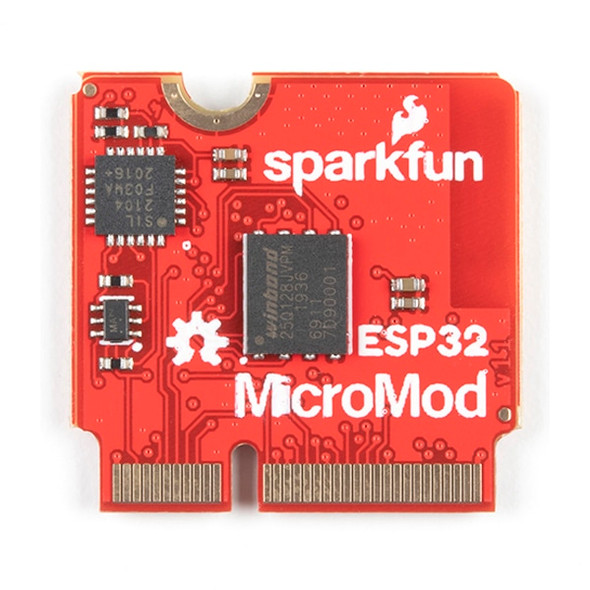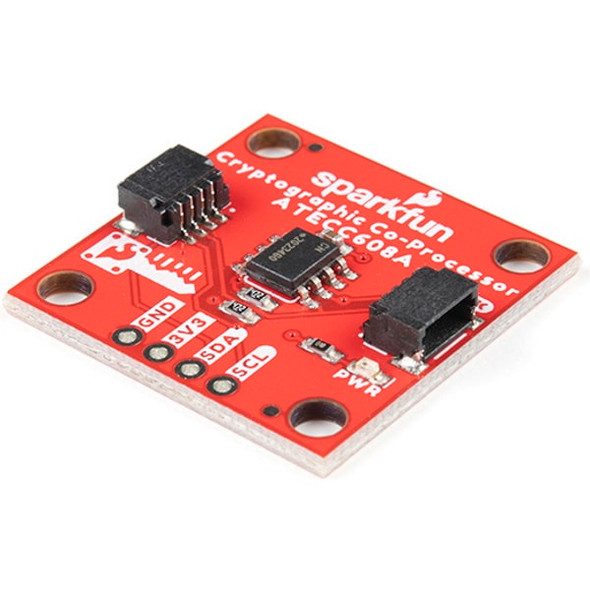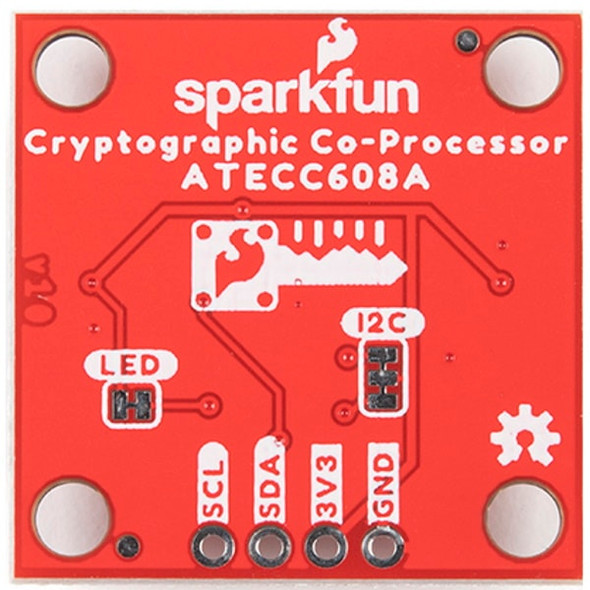Description
MicroMod Teensy Processor - Sparkfun DEV-16402
The SparkFun MicroMod Teensy Processor leverages the awesome computing power of the NXP iMXRT1062 chip and pairs it with the M.2 MicroMod connector to allow you to plug it into your choice of compatible MicroMod Carrier Board. With the M.2 MicroMod connector, connecting your Teensy Processor is a breeze. Simply match up the key on your processor's beveled edge connector to the key on the M.2 connector and secure it with a screw (included with all Carrier Boards). Adding a Teensy to your desired project has never been easier!
The Teensy Processor Board boasts some impressive computing power with an ARM Cortex-M7 processor operating at clock speeds up to 600MHz, 16MB Flash Memory, and 1024K RAM Memory. On top of all that processing power, the board features seven serial UART ports, four I2C buses, two SPI ports, CAN-Bus, 12 GPIO, dedicated digital, analog, and PWM pins, USB Host and Device capability up to 480Mbit/s, digital audio, and since many of the pins on the iMXRT1062 support multiple signal types you can customize it even further depending on your project's needs.
Teensy is a registered trademark of PJRC. The MicroMod Teensy is a collaboration between PJRC and SparkFun.
Features:
- USB Device up to 480Mbit/sec: Capable of enumerating as a USB keyboard, mouse, joystick, MIDI, audio, and more
- USB Host up to 480Mbit/sec: Capable of interfacing to USB flash drives, mice, keyboards, and more
- 7x Serial Ports
- 2x SPI
- 4x I2C Bus
- 1x CAN-Bus
- 1x I2S Digital Audio
- 1x SDIO for SD
- 2x Dedicated Analog Pins (Up to 14 available for use)
- 2x Dedicated PWM Pins (Up to 22 available for use)
NXP iMXRT1062 Processor:
The brain of the MicroMod Teensy Processor is the NXP iMXRT1062 from NXP Semiconductors. This Arm Cortex-M7 core processor is one of the most powerful microprocessors available today. The Teensy Processor takes advantage of the following properties:
- ARM Cortex-M7 at 600MHz
- Up to 600MHz clock frequency
- 3 Serial Ports (1 dedicated USB, 2 Serial UART)
- 2 SPI ports (One dedicated SPI available by default on most Carrier Boards[1]. Dedicated Hardware SDIO for SD.)
- 2 I2C Ports (One I2C bus available by default on most Carrier Boards[1])
- USB Host Capability
- 1 CAN Bus Interface
- 1 I2S Digital Audio
- 12 Dedicated GPIO
- 14 Analog pins (2 dedicated, 10 share signals.)
- 3.3V-tolerant I/O pins
- 8MB Flash Memory (64l reserved for recovery & EEPROM emulation)
- 1024K RAM Memory (512K is tightly coupled)
Board Dimensions:
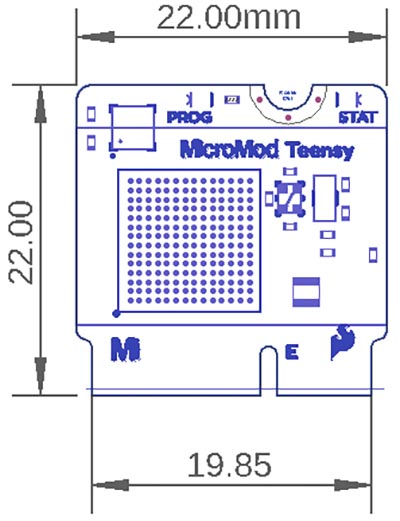
Documents:
Videos
View AllClose1 Review
-
Title of review 54460
Great alternative to Teensy 4 for low volume custom boards

